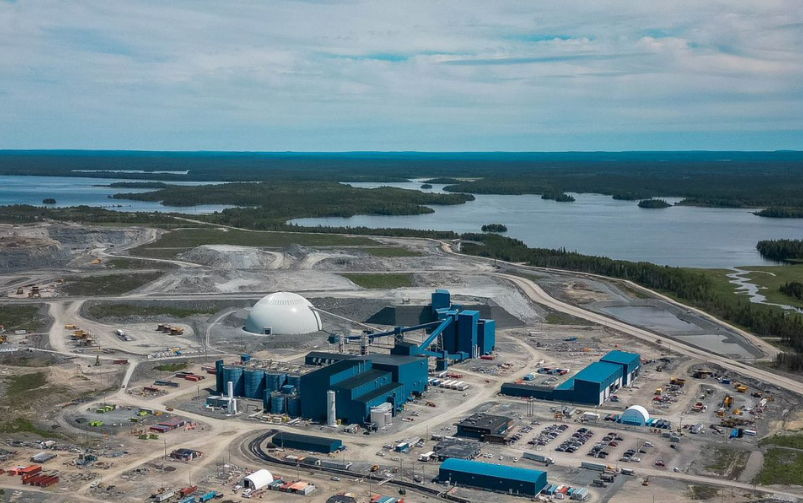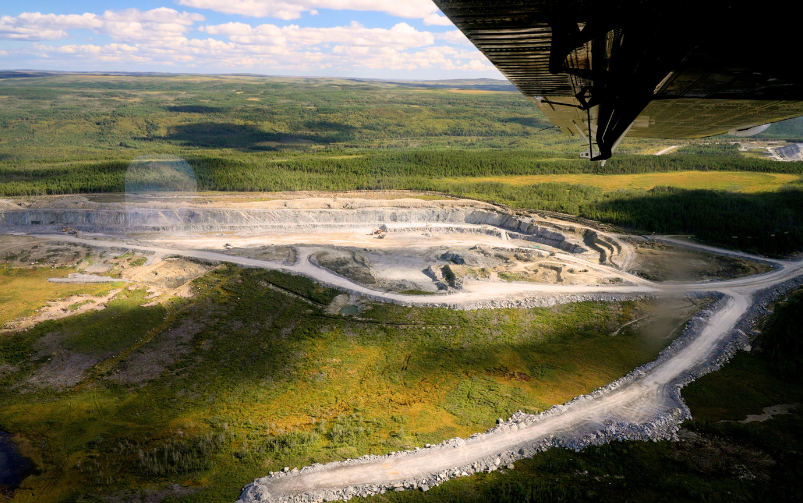EDC has provided project finance support to Antofagasta’s Minera Centinela copper mine in Chile in an effort to promote procurement for Canadian suppliers. Courtesy of Antofagasta PLC.
In late May, it was announced that Export Development Canada (EDC) had conditionally approved US$300 million in debt financing for Australian-listed company Arafura Rare Earths and its Nolans project in Australia, which is one of the world’s largest undeveloped neodymium-praseodymium (NdPr) resources.
Once completed, it would be Australia’s third rare earths processing plant, and the company estimated it would provide four per cent of the world’s supply of rare earths for magnets used in electric vehicles, robotics and wind turbines. The project was projected to cost around US$1.05 billion, based on figures released in November 2022.
In a May 27 press release from this year, the company said that “strategic alignment between EDC and Arafura ensures global supply of NdPr to advance the energy transition.”
“The geostrategic connection between Arafura and EDC was facilitated by GE Vernova Inc. in recognition of the significance of the Nolans project and its role in diversifying the rare earth materials supply chain for offshore wind turbines,” Arafura stated in the release. “EDC’s support of the Nolans project is linked to the non-binding memorandum of understanding with GE Renewable Energy and supply contracts from Canadian companies.”
CIM Magazine contacted EDC to receive more insight into the criteria it considers when financing these types of projects. EDC stated that while it could not comment on the conditionally approved debt financing due to its disclosure policy until it decides to proceed with a transaction, Tushar Handiekar, vice-president of structured and project finance at EDC, provided information on the company’s mandate and Structured and Project Finance program, which provides financing needs for international projects.
CIM: What is EDC’s mandate?
Handiekar: Our mandate is to support Canadian exporters and also to develop trade. And we do that by equipping Canadian companies with financial solutions on commercial terms—those financial solutions being loans, equity or insurance. As we are self-sustaining, we do not operate on a commercial basis, we do not provide grants or subsidies. And so what we look for is ensuring that mandates are met, and also developing Canada’s trade capabilities and helping Canadian companies grow internationally.
CIM: ASX-listed companies are under the list of EDC projects under consideration, and these projects are located in Australia. What perspectives are considered when EDC looks at financing a project?
Handiekar: We [support] projects, not only in Canada, but also support financing of projects internationally. And some of these projects are either owned by Canadian companies, or developed by Canadian companies, or there could be supply of equipment [or] technology know-how, engineering [know-how] of various sorts, that might go into these projects. We also do trade generation and trade development. In part of that trade development, we are looking at how some of the end benefits of supporting a project will ultimately bring value to Canadian companies. In some ways, we bring financing to offer support to a particular project in order for them to then buy more from Canada in that project or in the future.
CIM: Recognizing the increasing importance of securing critical mineral supply chains, has the mandate evolved around project financing in the last few years?
Handiekar: We continue to be very conscious about Canada’s position…to bring secure reliable critical minerals that are essential from the energy transition perspective towards a net-zero economy. So EDC plays a role in supporting Canadian companies and projects in that supply chain, both domestically and internationally. And we also work with a lot of our exporter agency partners to be able to bring in and provide…[a] level of financing that helps support those projects in that fashion.
CIM: Is any of EDC’s financing also used to secure imports?
Handiekar: At this point, our mandate is purely around the export of goods and services. So we don’t necessarily have the mandate to look at direct imports into Canada. Canada is a supplier of many minerals and it’s a great ground from an export perspective.
CIM: How can Canadian miners benefit from this program?
Handiekar: From a project financing perspective, our program is pretty significant in terms of our size and depth of financing that we’ve done. Our experience dates back over 25 years. We have Canada’s largest dedicated team of experienced project financiers in the mining sector.
As an organization, we also provide a lot of risk mitigation and capacity building products. For companies that are taking on certain risks in these markets, we provide different types of insurance support, bonding support, in order to help them be able to meet the financial obligations of what they do in this industry.




